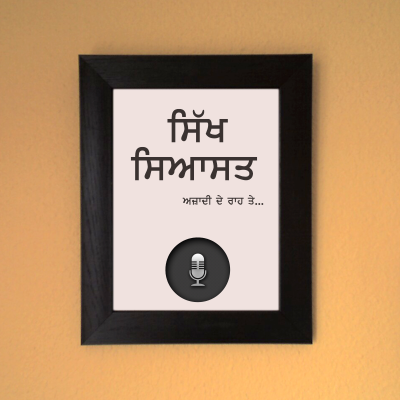
Sikh Siyasat Podcasts
Podcast af Sikh Siyasat
Begrænset tilbud
1 måned kun 9 kr.
Derefter 99 kr. / månedIngen binding.

Mere end 1 million lyttere
Du vil elske Podimo, og du er ikke alene
Rated 4.7 in the App Store
Læs mere Sikh Siyasat Podcasts
Podcasts hosted by Sikh Siyasat News feature speeches, lectures of various speakers and intellectuals; discussions and talk shows on vital issues concerning Sikhs, Punjab and Humanity.
Alle episoder
205 episoderProf. Kanwaljit Singh (Punjabi Department, Sri Guru Angad Dev College, Khadoor Sahib) delivered this insightful lecture at Khalsa College, Patiala on 18 August 2025 during a special seminar dedicated to the 350th Martyrdom Anniversary of Sri Guru Tegh Bahadur Ji.
This Sikh Siyasat special report by journalist Rajdeep Kaur explores the fascinating world of Punjabi dialects. Punjab is home to diverse regions, each with its own boli (way of speaking) that reflects history, geography, and culture.
On 13 August 2025, the eve of Pakistan’s Independence Day, Pakistan’s Prime Minister announced the creation of the Army Rocket Force Command (ARFC)—seen by many as inspired by China’s PLARF (People’s Liberation Army Rocket Force). The declaration immediately triggered debates about South Asia’s military balance and India’s security preparedness.
On 12 August 2025, the Indian Supreme Court delivered its verdict in the Sukhdev Yadav case, ruling that convicts serving fixed terms must be released upon completing their sentences.
In this insightful discussion, journalist Mandeep Singh speaks with Sikh Siyasat Editor Parmjeet Singh Gazi about the rapidly evolving dynamics between India and Pakistan.

Rated 4.7 in the App Store
Begrænset tilbud
1 måned kun 9 kr.
Derefter 99 kr. / månedIngen binding.
Eksklusive podcasts
Uden reklamer
Gratis podcasts
Lydbøger
20 timer / måned

































